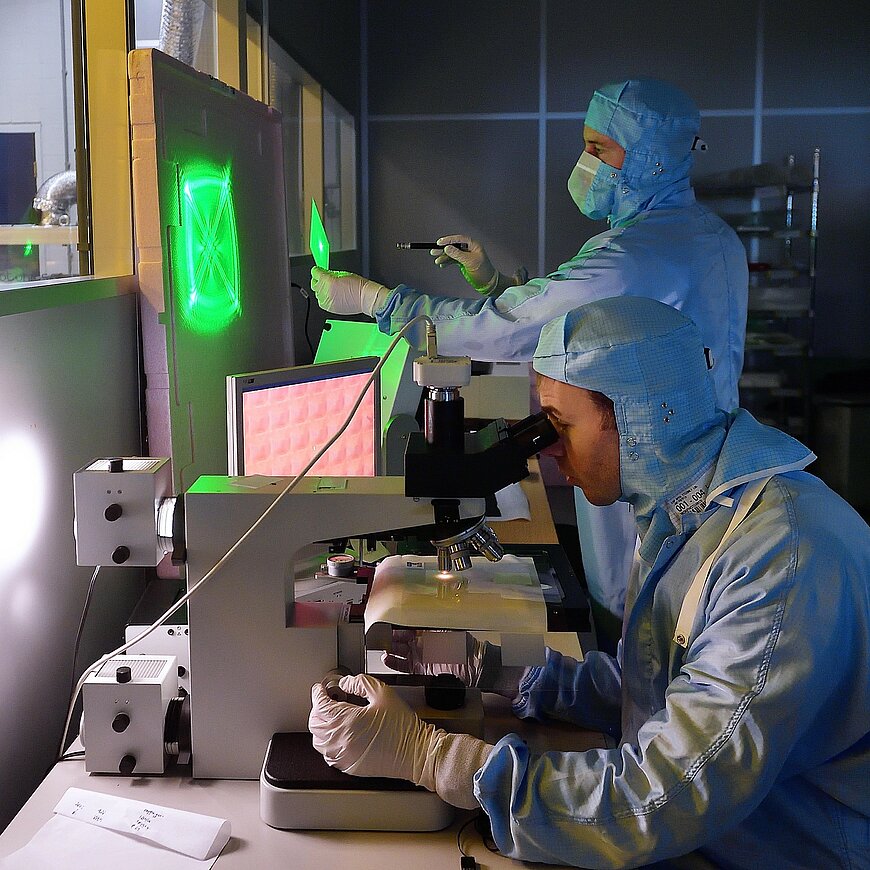Mass-scale testing for Covid-19 thanks to integrated photonics
Point-of-care tests are the holy grail of medical diagnostics. They offer the opportunity to test patients – at home, the GP or in hospital, and have the results within minutes. Saving lives, time and valuable lab work.

The Dutch companies LioniX, Qurin and Surfix are developing such a test for Covid-19. Supported by the public private partnership PhotonDelta that sees this partnership as an opportunity to unlock the potential of integrated photonics. The tests are expected to be available in all medical practices within months. The ultimate goal: manufacturing a fast, reliable and inexpensive disposable Covid-19 test, which can be used at a large scale. By combining the integrated photonics technology of LioniX International with Surfix’s nanocoatings and the biomedical expertise of Qurin Diagnostics, the parties expect to have the SARS CoV-2 testing devices ready for use within medical practices at the end of next year.
Jointly developing photonic biochip
The companies were already closely cooperating before the health crisis. Last year, LioniX and Qurin took over Surfix to accelerate their efforts to develop a photonic biochip for early detection of cancer. The Covid-19 test will be based on the same underlying principle. In fact, this principle can be used to detect many different entities. Not only viruses, but also DNA and RNA, proteins and other (bio) molecules. The partners fully intent to exploit that feature by developing not one, but two corona tests: one that tells if you have the disease and another that indicates if you have had it.
Recognizing the virus by changing characteristics of light
In general, the biochip works on the basis that the characteristics of light are altered when it passes through a waveguide that is coated with ‘hooks’ that ‘catch’ everything that is being tested for. If a sample solution is brought into contact with the waveguide and it contains a species that attaches itself to the hooks, the species will be detected through the changing characteristics of the light that is being led through the waveguide. All of this is possible thanks to the use of the proven integrated optical technology of LioniX and is based on silicon nitride (TriPleX), a key technology in the PhotonDelta ecosystem.
The technology is ready
“This pandemic is a terrible thing, of course, but there’s beauty in the fact that – thanks to years of hard work and investment – all the necessary elements are ready to be put together to make a difference in managing the spread of the disease,” says Surfix CTO Luc Scheres. Heideman chimes in: “The coming period, we’re going to see a lot of claims of revolutionary new sensor technologies that will fight COVID-19. Most of them will be baseless. Our partnership stands out because we’ve been working on these technologies for many years already. It’s very mature.”
Moving up a gear to maintain pioneering role in integrated photonics
“The Netherlands has played a pioneering role in integrated photonics,” Heideman continues. “The rest of the world is catching up, but we recently moved up a gear by establishing PhotonDelta. This organization fosters collaboration between relevant local companies, thus creating a well-oiled ecosystem that spans the entire value chain. This, too, allows us to accelerate our current efforts to develop our biochip.”